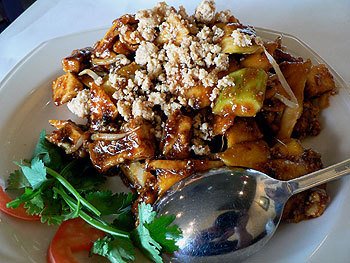IPS post-election forum | discounted thoughts
The Institue of Policy Studies post-election forum was interesting for a variety of reasons. Firstly, it was the first academic analysis of the elections and election results. Secondly, the topics discussed included elections and the new media factor, trends in political freedom, and voter trends. Thirdly, it had Alex Au (Yawning Bread) and Kenneth Kwek (Straits Times) in the same room, the prospect of which sent me into a very very happy place indeed despite the possibility of future blindness.
The aforesaid happy place was not worth $150 that IPS was charging, so I didn't go for the forum. bastards.
As a result, I was thoroughly happy when Yawning Bread, in the best possibly example of citizen journalism, wrote up a synopsis of the discussions that took place. I hate having to do anything based on second hand reports, since I'm sure he wasn't completely objective, something that I'm sure that those people who strongly suggested that the Straits Times should be turned into kitty litter will keep in mind. Nevertheless, I think he was as objective as humanly possible, and judging from what I heard from other people, he was probably spot on. You can read his account of it here and here, as well as a thoughtful breakdown of Gillian Koh's post-election survey results here.
A few things that caught my interest: Gillian Koh's phone survey which suggested that there was a preference for alternative parties, opposition voices, and "fairness" (whatever that is) amongst voters, and that nearly 80% of them listed it as a key concern. Alex Au made the valid observation that this only represented the views of those actually answered the survey, which was something around 30%, suggesting that those survey results only represented the views of the politically mature/aware. I feel obliged to add the caveat that politically mature/aware does not necessarily translate into "member of the high socio-economic-education class".
(As an aside, conversation I had with a Genuine Heartlander: "Ok lah, the government is efficient, but really sometimes they are too much! We need opposition MP because when they talk cock you need someone with big balls to talk back to them - that's why we need opposition party because no one listen to small fart like you and me.")
However, there was one point I would have liked to have seen raised: how far does this preference for an alternative party translate into votes? Or rather, did this preference actually affect voter decision?
The aforesaid happy place was not worth $150 that IPS was charging, so I didn't go for the forum. bastards.
As a result, I was thoroughly happy when Yawning Bread, in the best possibly example of citizen journalism, wrote up a synopsis of the discussions that took place. I hate having to do anything based on second hand reports, since I'm sure he wasn't completely objective, something that I'm sure that those people who strongly suggested that the Straits Times should be turned into kitty litter will keep in mind. Nevertheless, I think he was as objective as humanly possible, and judging from what I heard from other people, he was probably spot on. You can read his account of it here and here, as well as a thoughtful breakdown of Gillian Koh's post-election survey results here.
A few things that caught my interest: Gillian Koh's phone survey which suggested that there was a preference for alternative parties, opposition voices, and "fairness" (whatever that is) amongst voters, and that nearly 80% of them listed it as a key concern. Alex Au made the valid observation that this only represented the views of those actually answered the survey, which was something around 30%, suggesting that those survey results only represented the views of the politically mature/aware. I feel obliged to add the caveat that politically mature/aware does not necessarily translate into "member of the high socio-economic-education class".
(As an aside, conversation I had with a Genuine Heartlander: "Ok lah, the government is efficient, but really sometimes they are too much! We need opposition MP because when they talk cock you need someone with big balls to talk back to them - that's why we need opposition party because no one listen to small fart like you and me.")
However, there was one point I would have liked to have seen raised: how far does this preference for an alternative party translate into votes? Or rather, did this preference actually affect voter decision?
Story behind this - a friend came back on the edge of tears: "I'm so so sorry, I just couldn't bring myself to vote for the WP - I really think there needs to be checks and balances especially after NKF, but I just couldn't do it!"
It's like the Potong Pasir syndrome. Everyone wants Potong Pasir to stay opposition (Chiam! Woo! Hot! Elderly! Statesman!) but it's a NIMBY thing - someone elses' ward should be opposition. In your own ward, you might be a bit more concerned about rising prositutes and lowered property values than opposition voices, which are often misunderstood as something less close to home.
I suppose what I'm also trying to say is this: If you had two equally qualified candidates, would the opposition factor be a factor in your decision making process?
(More thoughts tomorrow. This is a re-typed entry, a mere ghost of the one that Blogger swallowed up and digested in its vasty fetid codes)
(More thoughts tomorrow. This is a re-typed entry, a mere ghost of the one that Blogger swallowed up and digested in its vasty fetid codes)


0 Comments:
Post a Comment
<< Home